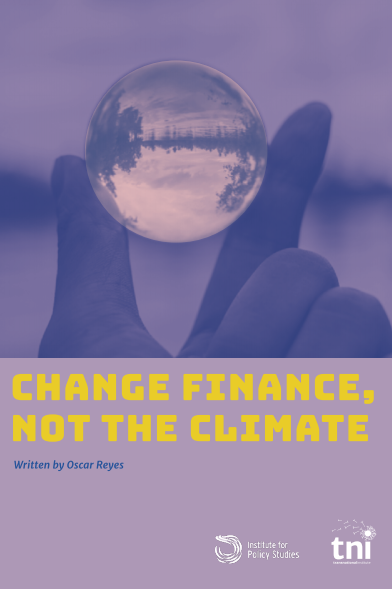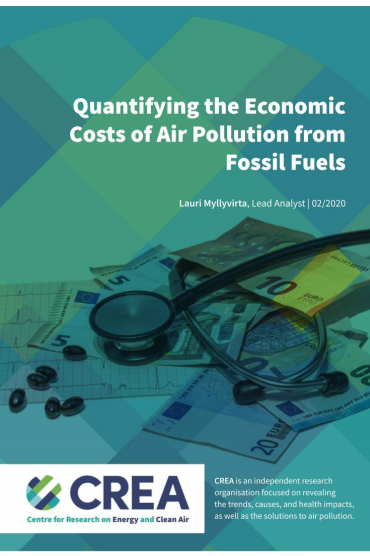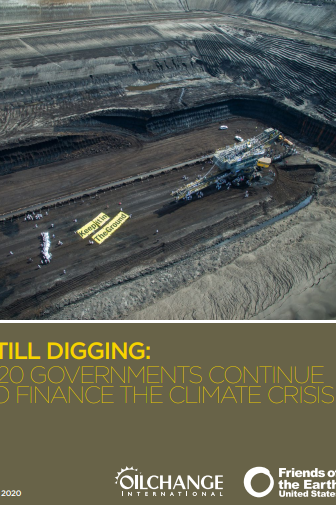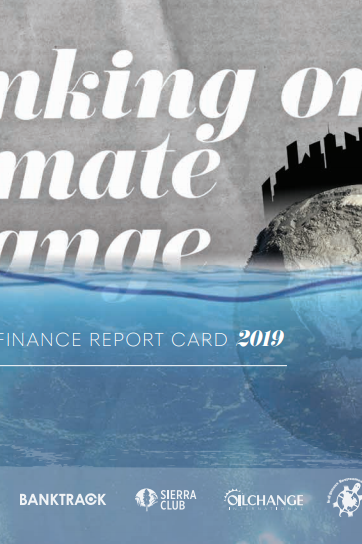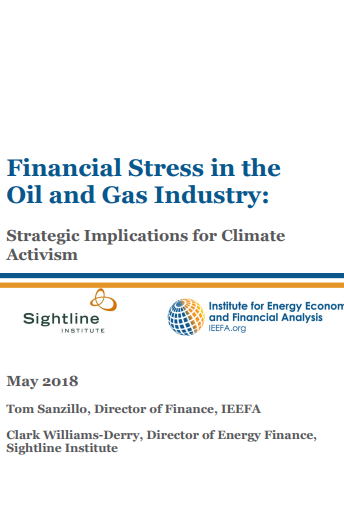Research
Economics, Finances, and Fossil Fuels
The fossil fuel industry has become a drag on our economy. Fossil fuel companies have proven to be a bad investment, while clean energy becomes more profitable by the day. These reports show the risks that fossil fuels pose to our economy and financial system, as well as the opportunity to move in a new direction.
Resources
Click here to see our latest talking points on health and fossil fuels or download them as a PDF.
Change Finance, Not the Climate
Oscar Reyes, Transnational Institute (TNI) and the Institute for Policy Studies (IPS).
This book presents progressive proposals to build a fair financial system that can respond to the climate crisis, assess their potential impact, achievability and any associated drawbacks. Climate activists are presented with a variety of financial tools to power a just transition, including: green bonds for public investment in a Green New Deal; credit policies by central banks and financial regulators to increase fossil-free lending and cut the flow of finance to the worst polluters; the creation of green development banks with a clear climate and social mandate to prioritize public and local initiatives; reforming company boards and introducing corporate charters that offer a legal vehicle to hold companies to account for the pollution they cause; divestment from fossil fuels, targeting insurance companies underwriting the coal sector as a first priority, and the development of climate investment strategies by public pension funds.
Top Recommendations:
- Replace quantitative easing with public finance for a Green New Deal.
- Get central banks and financial regulators to create “green credit” policies.
- Establish green development banks (or green investment banks) as a clear focus for public financing of renewable energy, energy efficiency or low-carbon transport infrastructure.
- Target insurance industry divestment from the coal sector as a key priority.
- Create corporate charters, requiring large companies to act in the interests of workers, customers and the communities in which they are based.
- Encourage greening of public pension funds. Many public pension funds have little or no climate investment strategy and remain heavily invested in fossil fuels. They should reclaim their “public” dimension through a revised investment mandate that factors in environmental and social as well as economic considerations.
Quantifying the Economic Costs of Air Pollution from Fossil Fuels
Center for Research on Energy and Clean Air
This paper assesses the global economic burden caused by air pollution from fossil fuels. It incorporates many recent first-of-a-kind findings, including the first study to assess the contribution of fossil fuels to global air pollution levels and health impacts, as well as novel research on the burden of asthma and diabetes linked to air pollution.
Key Findings:
- The economic costs of air pollution from fossil fuels are estimated at US $2.9trillion in 2018, or 3.3% of global GDP, far exceeding the likely costs of rapid reductions in fossil fuel use.
- An estimated 4.5 million people died in 2018 due to exposure to air pollution from fossil fuels. On average, each death was associated with a loss of 19 years of life.
- Fossil fuel PM2.5 pollution was responsible for 1.8 billion days of work absence, 4 million new cases of child asthma and 2 million preterm births, among other health impacts that affect healthcare costs, economic productivity and welfare.
Still Digging: G20 Governments Continue to Finance the Climate Crisis
Oil Change International, Friends of the Earth United States
This report summarises public finance flows for energy from bilateral G20 public finance institutions and MDBs in the post-Paris period. With the health and livelihoods of billions at immediate risk from COVID-19, governments around the world are preparing public spending packages of a magnitude they previously deemed unthinkable. In normal times, development finance institutions (DFIs), export credit agencies (ECAs), and multilateral development banks (MDBs) already had an outsized impact on the overall energy landscape and more capacity than their private sector peers to act on the climate crisis. In the current moment, their potential influence has multiplied, and it is imperative that they change course. The fossil fuel sector was showing long-term signs of systemic decline before COVID-19 and has been quick to seize on this crisis with requests for massive subsidies and bailouts.1We cannot afford for the wave of public finance that is being prepared for relief and recovery efforts to prop up the fossil fuel industry as it has in the past. Business as usual would exacerbate the next crisis—the climate crisis—that is already on our doorstep.
Key Findings:
- Support for fossil fuels has not dropped since the Paris Agreement was made. Progress on coal took a step backwards compared to 2013 to 2015, with annual average support for coal from G20 countries increasing by $1.3 billion. Support for oil and gas stayed steady at $64 billion a year, showing that public finance institutions are far from aligning their financing with what is necessary to limit warming to 1.5°C. F.
- Export credit agencies (ECAs) were the worst public finance actors, providing nearly 14 times as much support for fossil fuels than clean energy with $40.1 billion a year for fossils and just $2.9 billion for clean energy.
- Development finance institutions (DFIs) have not supported a transition away from fossil fuels. DFIs provided $25.1 billion annually for fossil fuels and $8.1 billion annually for clean energy, similar to what they financed in 2013 to 2015.
- Most of this fossil fuel finance flowed to wealthier countries. Nine of the top fifteen recipients were high or upper-middle income countries by the World Bank’s classification.6 Six were lower-middle income, and only one low-income.
- China, Canada, Japan, and Korea provided the most public finance for fossil fuels between 2016 to 2018.
Banking on Climate Change
Honor The Earth, Oil Change International, Bank Track, Sierra Club, Rainforest Action Network
This report adds up lending and underwriting from 33 global banks to the fossil fuel industry as a whole. The findings are stark: these Canadian, Chinese, European, Japanese,and U.S. banks have financed fossil fuels with $1.9 trillion since the Paris Agreement was adopted (2016–2018), with financing on the rise each year. This report finds that fossil fuel financing is dominated by the big U.S. banks, with JPMorgan Chase as the world’s top funder of fossil fuels by a wide margin. In other regions, the top bankers of fossil fuels are Royal Bank of Canada in Canada, Barclays in Europe, MUFG in Japan, and Bank of China in China.
Key Recommendations:
- Prohibit all financing for all fossil fuel expansion projects and for companies expanding fossil fuel extraction and infrastructure.
- Commit to phase out all financing for fossil fuel extraction and infrastructure, on an explicit timeline that is aligned with limiting global warming to 1.5 degrees Celsius.
- Prohibit all financing for all projects in coal mining, tar sands oil, arctic oil and gas, ultra-deepwater oil and gas, fracked oil and gas, and liquefied natural gas, and all companies with operations or expansion plans for these sub-sectors.
- Fully respect all human rights, particularly the rights of indigenous peoples.
Financial Stress in the Oil and Gas Industry
Sightline Institute; Institute for Energy Economics and Financial Analysis(IEEFA)
This report gives an analysis of the oil and gas industry’s financial plight. In the past several years, oil industry financial statements have revealed significant signs of strain: profits have dropped, cash flow is down, balance sheets are deteriorating and capital spending is falling. The stock market has recognized the sector’s overall weakness, punishing oil and gas shares over the past five years even as the market as a whole has soared.
Key Recommendations:
- Rising U.S. oil and gas production precipitated the 2014 price crash and has since helped cap upward price pressures, putting tremendous stress on an industry that developed an over-reliance on massive, capital-intensive extraction projects dependent on high prices for financial success.
- Despite the obstacles the industry faces, for many decades the oil and gas sector has produced value to shareholders and significant revenue for many governments. This makes the industry’s slipping financial performance all the more troubling. Governments that rely on oil and gas revenue now face severe funding shortages that, in several notable instances, have resulted in political turmoil and even challenges to government legitimacy.
- Anti-fossil fuel campaigns must pay attention to the oil and gas industry’s bottom lines. A financial lens can clarify the tactics and strategies that are most likely to have the greatest impacts on public opinion,investment decisions and industry actions.

